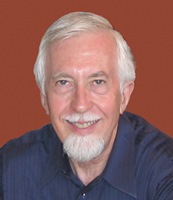
Dennis Drescher, Ph.D., professor of Otolaryngology and Biochemistry for the Wayne State University School of Medicine, has been awarded a continuation grant of $110,000 from the Jain Foundation of Seattle, Wash., to study disorders of muscle and the inner ear.
The Jain Foundation is devoted to research on a form of muscular dystrophy identified as LGMD2B/Miyoshi, which is caused by a defect in the dysferlin protein. Dr. Drescher is studying how the origins of muscular dystrophy may be related to genetic deafness through specialized proteins called ferlins, known to repair cell membranes.
Both skeletal muscle and the inner ear contain ferlins, which are involved in membrane fusion and repair processes. In muscle, dysferlin repairs tears in the muscle membrane, whereas in the inner ear, otoferlin acts by fusing sensory cell membranes allowing auditory signal transmission. Genetic abnormalities in these proteins cause muscle wasting and deafness, respectively. This continuation grant will explore new findings in muscle-associated dysferlin in the inner ear and how this protein might be involved in recovery from temporary deafness.
Dysferlinopathy is an autosomal recessive neuromuscular disorder caused by a deficiency of the functional dysferlin protein. The symptoms of dysferlinopathy usually manifest between the ages of 16 and 25 and primarily affect the skeletal muscle of the limbs, hips and shoulders. Dysferlinopathy is characterized by progressive muscle wasting and is clinically diagnosed as limb-girdle muscular dystrophy type 2B (LGMD2B) or Miyoshi muscular dystrophy, depending on whether the thighs and upper arms or calves and lower arms are affected.
Inner ear sensory cells are vulnerable to injury by sound, and their membranes become porous after noise exposure that causes auditory threshold shifts. Normally, the membranes reseal during the recovery process, and hearing returns. Dr. Drescher and his group have recently detected dysferlin in the cochlea, a finding that may provide a molecular correlate for recovery from noise-induced auditory threshold shifts and provide a missing link for understanding and ameliorating some forms of deafness. Dr. Drescher's research depends upon using a dysferlin-specific antibody, mass spectroscopy and an optical technique (surface plasmon resonance) for detecting interactions of dysferlin with other proteins that patch cell membranes. Further clues are obtained from studying the effect of calcium, which rushes in through the injured regions and directs the manner in which the repair proteins work together.
Dr. Drescher's research offers the potential of better diagnoses of ferlin-based disorders as well as providing a deeper understanding of underlying mechanisms. "Our hope is eventually to construct cell-penetrating proteins that can replace genetically-dysfunctional ferlins," he said. "We are very grateful to the Jain Foundation for providing the necessary funding to explore how nature uses related proteins to accomplish similar purposes across different organs of the body."
The title of Dr. Drescher's grant is "Molecular-Functional Comparisons of the Dysferlin Membrane Repair Complex with the Otoferlin Synaptic Complex." He serves as the principal investigator and Marian Drescher, Ph.D., associate professor of Otolaryngology is co-principal investigator. Selvakumar Dakshnamurthy, Ph.D., research associate, will aid in the experimental investigations.